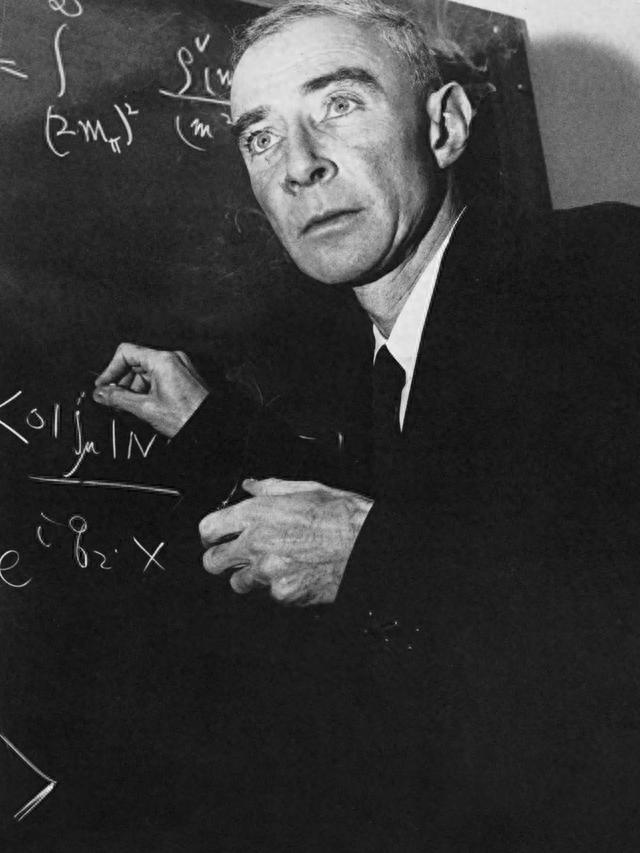Knowing these histories will make Oppenheimer feel better. Nolan’s new works have simple background knowledge and popular science.
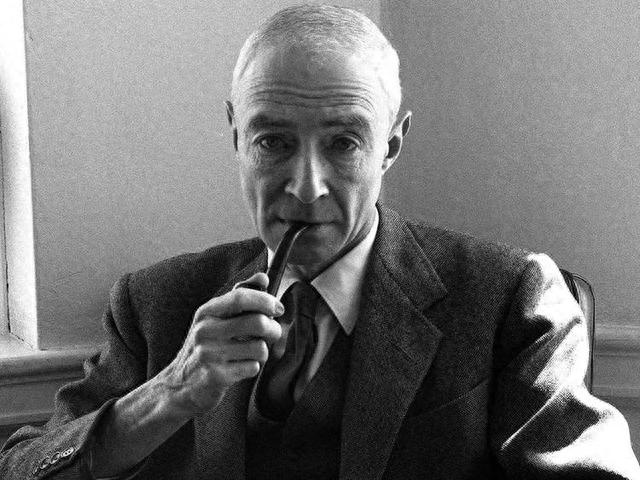
Christopher Nolan’s 12th directorial work, Oppenheimer, a highly anticipated blockbuster film, will finally appear on the big screen in mainland China. Cillian Murphy, who worked with Nolan for six times, finally became the leading actor, playing the famous and once infamous physicist J. Robert Oppenheimer. (Author: Sadako)
Although history textbooks mention the American study of the atomic bomb and the Manhattan Project, most viewers are not familiar with Oppenheimer. Nolan, who doesn’t take the usual path, has taken a fancy to this historical figure and made it into Oscar’s favorite biography type. The history behind this figure must have something strange.
Nolan emphasized that you can watch this film without doing any homework, but knowing more about the background knowledge will still make the audience better feel the ups and downs behind history.
Oppenheimer’s most important identity is "the father of the atomic bomb". He is the theoretical physicist in charge of the Los Alamos National Laboratory in the Manhattan Project. The deadly weapon developed by this top secret project destroyed the two cities of Hiroshima and Nagasaki in Japan in 1945.
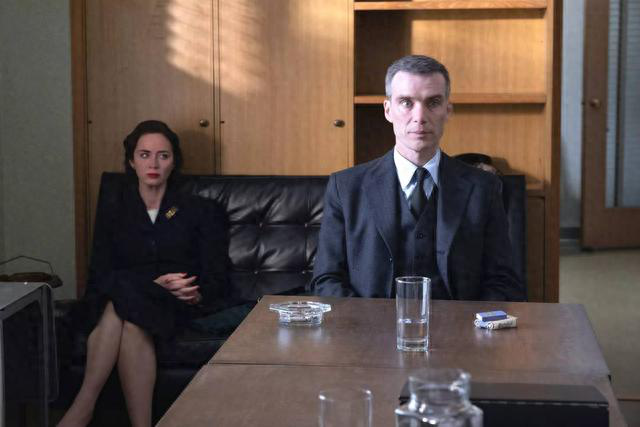
Oppenheimer stills
There is no doubt that Oppenheimer is a genius, and his IQ has far surpassed his peers since childhood, which is the starting point for him to embark on the road of developing atomic bombs. But genius may generally be accompanied by a relatively withdrawn personality, depression and even schizophrenia …
Oppenheimer expressed his views on the seriousness of nuclear weapons after the two atomic bombs detonated against Japan, and publicly opposed the development of hydrogen bombs intended for the former Soviet Union during the Cold War in later years.
Coupled with the American Communist identity of Oppenheimer’s lover and wife, he was regarded as a sympathizer of the American Communist Party when he met McCarthyism in the United States after World War II, and therefore he accepted numerous investigations. The success of the atomic bomb did not make him a "hero" in the traditional sense. He even quoted the famous saying in the Bhagavad gita: "Now I have become a god of death, the destroyer of the world."
Oppenheimer, directed by Nolan, faithfully adapted the original biography written by historian Martin Kallving and writer Kay Bird-Prometheus in America (the book was officially translated into Oppenheimer’s Biography in Chinese).
It is said that this book was given to Nolan by Robert Pattinson as a gift at the party in Tenet. Nolan became obsessed with Oppenheimer after reading it, which is also the origin of Oppenheimer.
01. Who is Oppenheimer?
Julius Robert Oppenheimer was born on April 22nd, 1904. "Julius" has the same name as Julius Caesar, but as shown in the movie, Oppenheimer doesn’t like this name and uses his middle name "Robert". He became famous for his academic talent at an early age, and began to study physics and chemistry at the age of 10.
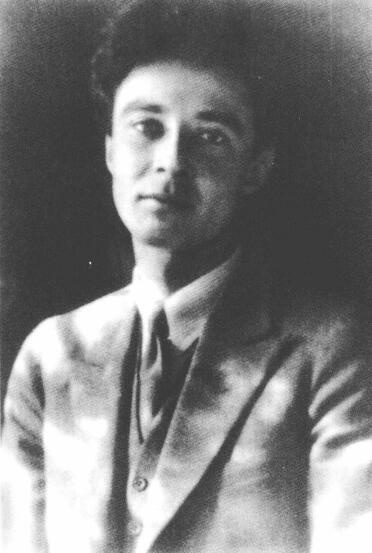
Young Oppenheimer
When he was 12 years old, new york Mineralogy Club invited him to speak at the meeting. At that time, they didn’t realize that he was not old enough to go to middle school. He graduated from Harvard University at the age of 22, and it took him three years to complete his undergraduate course. At that time, he studied chemistry instead of physics.
After graduation, Oppenheimer went to Europe and began to study at Cambridge University. Oppenheimer’s classmates at Harvard once said that Oppenheimer confessed to him that he injected potassium cyanide into the apple on the desk of his Cambridge professor and then threw it away the next day before the professor ate it. This plot was also restored in the movie.
However, Oppenheimer’s grandson Charles once told foreign media that it was not true. "There is no record that he tried to kill people. This is a very serious accusation and historical revisionism. In Robert Oppenheimer’s life, no enemy or friend has heard of it and thinks it really happened. "
Oppenheimer was unhappy in Cambridge, and then transferred to the University of G? ttingen, where he studied under Max Born (one of the founders of quantum mechanics, who won the Nobel Prize in Physics) and obtained a doctorate in physics. He returned to the United States, became an adviser to the Atomic Energy Commission (AEC) after World War I, and taught at the University of California, Berkeley, from 1929 to 1943.
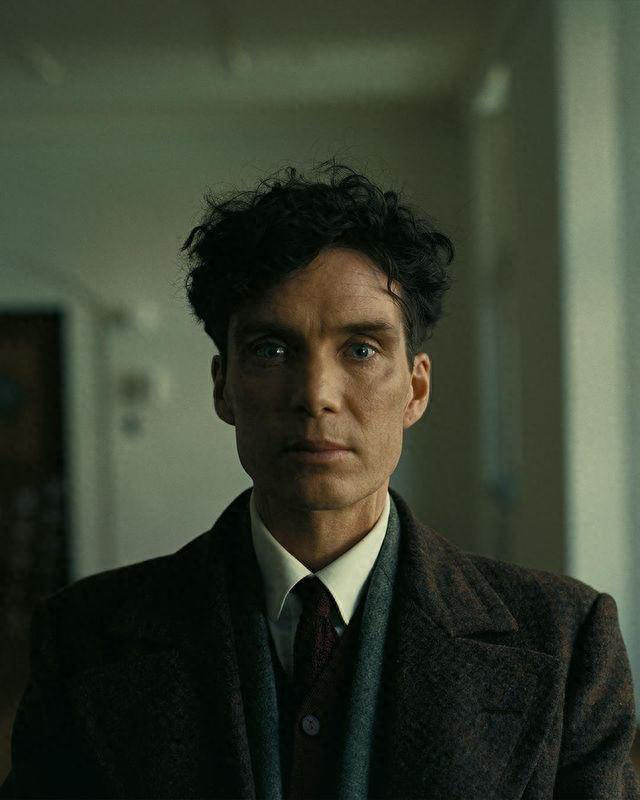
Oppenheimer as Hirian Murphy.
Although President Roosevelt expressed some hesitation, the United States launched the "Manhattan Project" during World War II, aiming at researching and manufacturing atomic bombs. In 1942, Oppenheimer was recruited by leslie groves (played by Matt Damon), the commander-in-chief of Manhattan Project. In 1943, he was appointed as the head of the laboratory of Project Y (Los Alamos Laboratory in New Mexico), devoted to the study of weapon physics.
On July 16, 1945, the first atomic bomb "Trinity" in human history was detonated here under the command of Oppenheimer. In August of the same year, Hiroshima and Nagasaki were bombed; In November, Oppenheimer left the Manhattan Project.
02.奥本海默的家庭与爱情
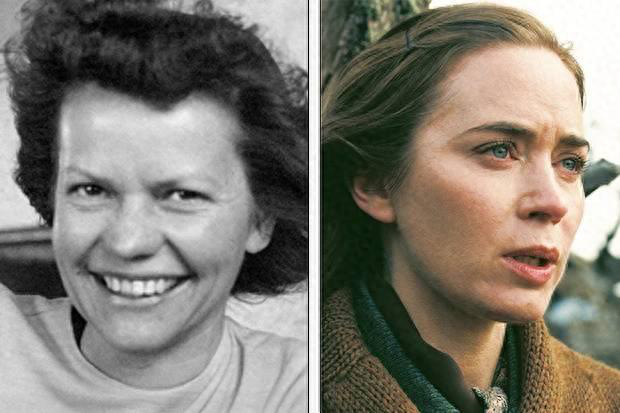
艾米丽布朗特和原型对比
奥本海默于1940年与生物学家凯瑟琳“基蒂”·奥本海默(娘家姓普宁)结婚。基蒂(由艾米莉布朗特饰演)此前已经结过三次婚:她在1933年作废了第一次婚姻;她的第二任丈夫是美共,在西班牙内战期间去世;她与第三任丈夫理查德·哈里森结婚时,认识了奥本海默,与理查德离婚后,与奥本海默结婚。
基蒂和奥本海默有两个孩子:1941年出生的儿子彼得,和1944年出生的女儿凯瑟琳“托尼”。根据美国国家核科学与历史博物馆的说法,基蒂曾在上文中提到过的洛斯阿拉莫斯实验室短暂工作过,她经常为实验室内的其他科学家妻子们举办party。
她是奥本海默的第一个,也是最重要的知己。基蒂还曾经历过酗酒和抑郁症,特别是在奥本海默于1967年去世后,她于1972年在巴拿马因肺栓塞而去世。
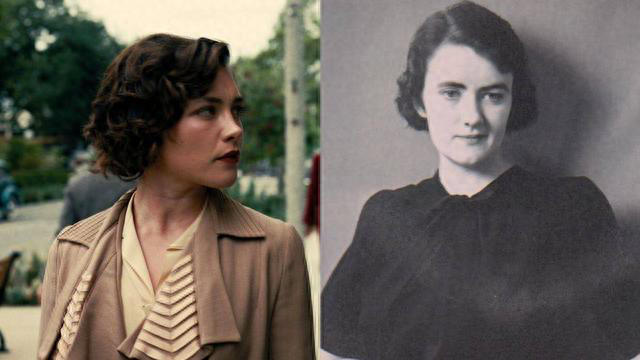
塔特洛克和演员佛劳伦斯对比
在遇到基蒂之前,奥本海默曾与精神科医生、也是美共党员的吉恩·塔特洛克(弗洛伦斯·皮尤饰)在一起过。两人于1936年相识,但塔特洛克在1939年跟他分手了。然而,在奥本海默与基蒂结婚期间,他和塔特洛克重燃爱火。
In 1943, he even made a special trip from Los Alamos Laboratory to San Francisco to spend the night with Tatlock. Tatlock committed suicide in January 1944. There are two different explanations about her death.
03. What other contributions did Oppenheimer make?
Oppenheimer is mainly engaged in theoretical physics and has made many contributions in this field. Although he is famous as the "father of the atomic bomb", he is also responsible for inventing the Born-Oppenheimer approximation (also known as adiabatic approximation), which is a mathematical approximation method in molecular dynamics.
His work also laid the foundation for some discoveries of other scientists in the future, such as neutrons, mesons and neutron stars, and other theoretical contributions.
04. What is the Manhattan Project?
In 1939, scientists all over the world learned that scientists from Nazi Germany (including Werner Heisenberg, the Heisenberg of Heisenberg Uncertainty Principle, whom Oppenheimer met at the University of G? ttingen) had learned how to split uranium atoms. This process is called nuclear fission, which requires a neutron to collide with uranium atoms, thus releasing energy, which may have devastating consequences.
This news has aroused the vigilance of scientists around the world, especially because it means that the Nazis may invent their own atomic weapons.
Albert Einstein (tom conti), who fled Nazi Germany, and physicist Leo Slizad all took action to talk with President Roosevelt about the seriousness of this situation and encourage Roosevelt to let scientists devote themselves to developing their own projects in the United States.

Einstein and Oppenheimer
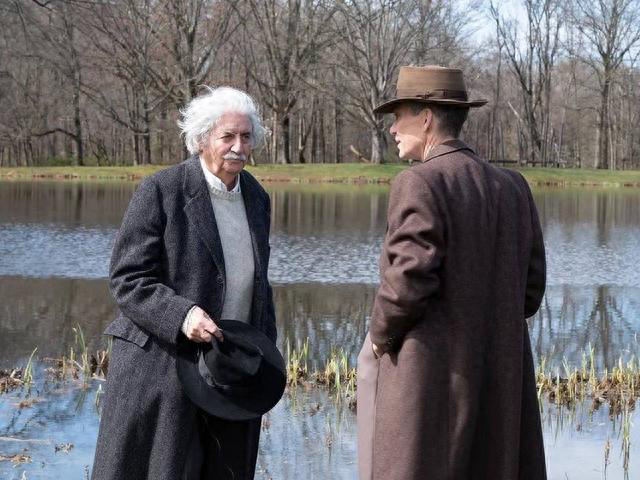
Oppenheimer and Einstein in the film
The American government launched the Manhattan Project in 1942, but Einstein himself did not participate in this military and scientific project. The project was originally headquartered in new york, hence its name, and was led by Lieutenant General leslie groves (Matt Damon) mentioned above.
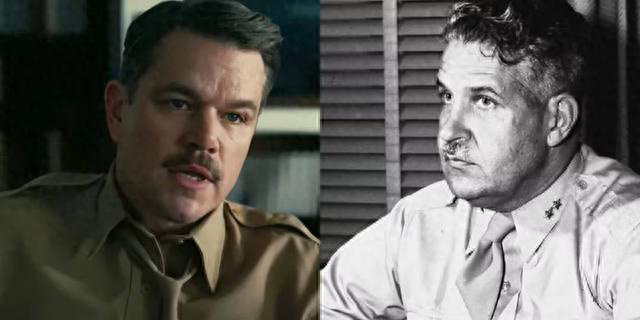
Comparison between groves and Matt Damon
The program has two secret nuclear facilities, one in Oakridge, Tennessee, and the other in hanford, Washington, and the Los Alamos Laboratory in New Mexico, where Oppenheimer is the research director. Although 120,000 people participated in the Manhattan Project, only a few people knew the real purpose of their contribution.
The first atomic bomb in human history was detonated on July 16th, 1945 in the desert of Jurnada de Mueto, more than 200 miles south of Los Alamos, which was called Trinity Experiment. Oppenheimer chose "Trinity" as the code name, which was inspired by the poem of John Dunn, a British poet in the 16th century (it was also recommended to him by his lover Tatlock).
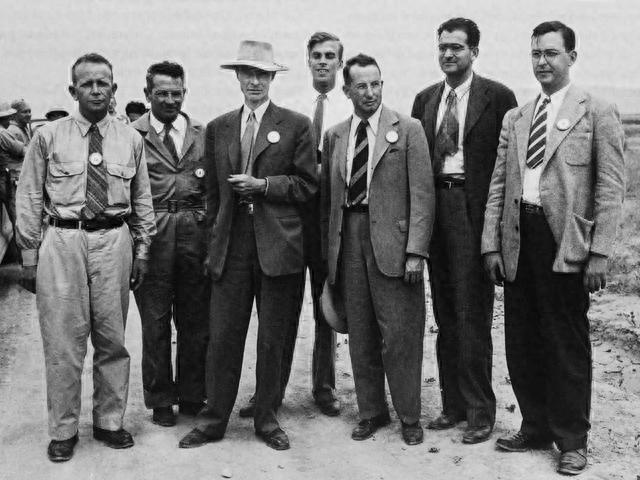
Oppenheimer et al. in Los Amos
The experimental results of the explosion shocked all the participants, and the explosion could be felt in houses 160 kilometers away, and the mushroom cloud expanded to about 12.8 kilometers above the sky.
After the Trinity Experiment, Oppenheimer recalled, "Some people laughed, some people cried, and most people remained silent." The most famous sentence he said at that time came from the Hindu classic Bhagavad-gita: "Now, I am a god of death, the destroyer of the world." (Now, I am become Death, the destroyer of worlds.)
05. What’s Oppenheimer’s attitude towards the atomic bomb?

Oppenheimer and Murphy
Oppenheimer has always been confident in his work, including the two atomic bombs that exploded in Hiroshima and Nagasaki, Japan. In the 2012 book Robert Oppenheimer: A Life in the Center, author Jay Monk wrote that on August 6, 1945 (the date when the first atomic bomb was dropped on Hiroshima), Oppenheimer and other scientists seemed to be full of victory.
As described in the book, "In the cheers, Oppenheimer told the crowd that it was too early to evaluate the results of the explosion, but’ the Japanese don’t like it’." Monk added that Oppenheimer’s only regret was that "we didn’t develop the bomb in time to deal with the Germans."
Oppenheimer was not proud or happy when the second atomic bomb destroyed Nagasaki, Japan on August 9, 1945. Monk wrote that an FBI report said that Oppenheimer became a "nervous person" after the Nagasaki incident on August 9, and was described as "how many real benefits can be brought by unwilling to commit to continuing the atomic bomb work".
06. What did Oppenheimer say after the 1945 nuclear explosion?
On August 17th, 1945, Oppenheimer went to Washington, D.C., and sent a handwritten letter to Henry L Stinson, then the Secretary of the Army of the United States, expressing his disgust at dropping bombs and his hope that nuclear weapons would be banned. Stinson had specifically asked the atomic bomb to avoid Kyoto, because it was in Kyoto that he and his wife spent their honeymoon (this detail was supplemented by Stinson’s actor james remar and added to the film by Nolan).
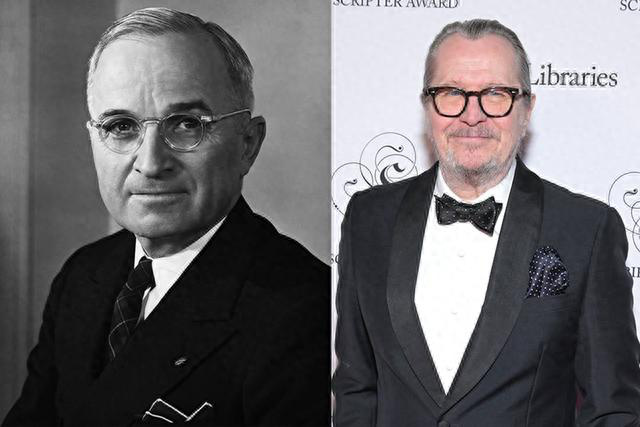
Comparison between Truman and Gary Odeman
In October of the same year, Oppenheimer went to the White House to meet the then US President Truman (Gary Oldman), which was extremely unpleasant. Oppenheimer said to the president, "Mr. President, I think my hands are covered with blood." The president dismissed his confession, pointing out that it was Truman who made the decision to drop the atomic bomb, not Oppenheimer. Truman also had a bad opinion of Oppenheimer. "I never want to see that X(son of a bitch in this office again."
1945年11月,奥本海默离开了洛斯阿拉莫斯实验室的职位。在告别演讲中他承认,最初建造核弹的原因,是人们认为使用这种武器可能是赢得二战的唯一途径。一旦清楚地意识到可以在没有使用原子弹的情况下赢得战争,不同的动机就产生了。
1946年,因在洛斯阿拉莫斯实验室所做出的贡献,奥本海默被杜鲁门总统颁发了最高荣誉勋章。
07.奥本海默是美共党员吗?
在两颗原子弹爆炸后的几年,美国政治局势很紧张。奥本海默被任命为原子能委员会(AEC)的总顾问委员会主席,在这个职位上,他反对发展氢弹。
当时,美国与前苏联正深陷冷战,奥本海默反对制造氢弹的建议,被视为政治立场有问题,他很快被卷入了麦卡锡主义,受到了美国政府的调查。
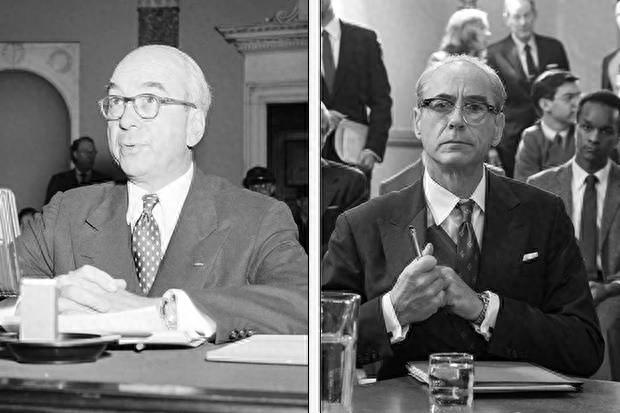
斯特劳斯和唐尼对比
1953年12月,当时的原子能委员会主席(也是奥本海默的敌人)刘易斯·施特劳斯(小罗伯特·唐尼饰)通知奥本海默,由于奥本海默被指控与美共有联系,是苏联间谍,他的安全许可被暂停,敦促奥本海默辞职。奥本海默的情人塔特洛克、弟弟弗兰克·奥本海默和弟妹杰姬都是已知的美共党员,奥本海默在伯克利教书期间,以及曼哈顿计划期间都曾受到调查。
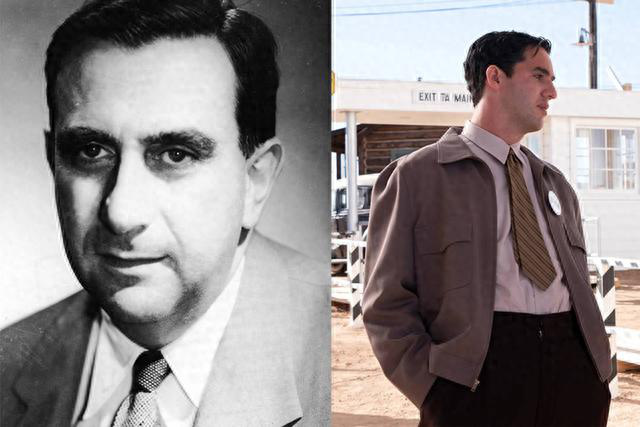
爱德华泰勒和萨夫迪对比
Oppenheimer did not resign, but asked for a hearing on the matter, which began in April 1954 and lasted for four weeks. Some of Oppenheimer’s former colleagues testified against him, including edward tylor (Beni Safdie), the future "father of the hydrogen bomb", and Taylor lost his popularity in the scientific community. In the end, Oppenheimer lost his security clearance and his job.
08. The last ten years of Oppenheimer’s life
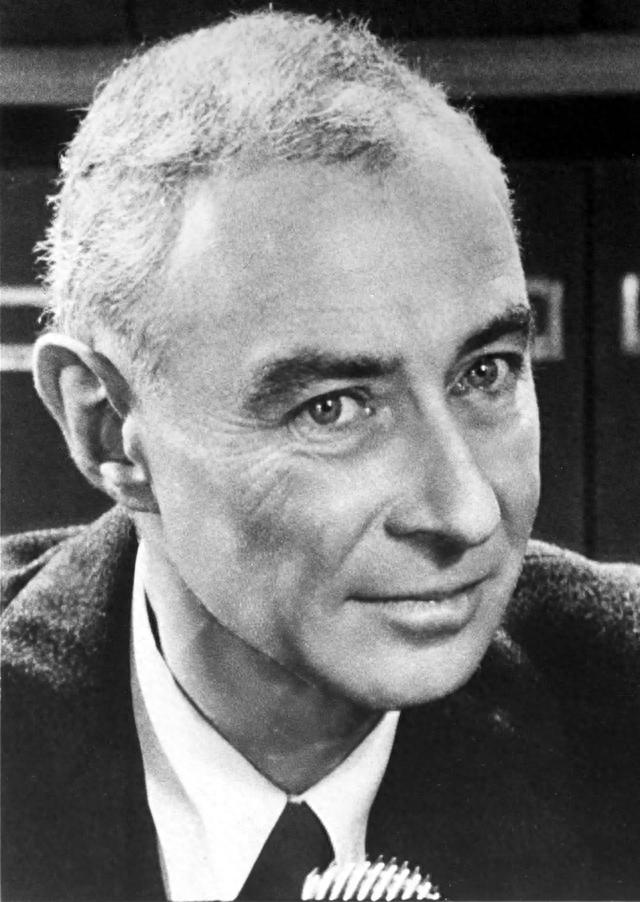
Oppenheimer’s later years
Since 1954, Oppenheimer has been living in the Virgin Islands with his family for several months every year from time to time (this experience is not mentioned in the film). Although he lost his power in politics, Oppenheimer continued to give lectures and study physics in the following days.
In 1959, John F. Kennedy, who was still a congressman, opposed Oppenheimer’s enemy Strauss, and finally helped to end Strauss’s political career.
In 1962, Kennedy, who was already the president of the United States, invited Oppenheimer to the White House. At that time, the chairman of the Atomic Energy Commission asked Oppenheimer whether to restore his security clearance, but Oppenheimer refused.
A year later, Oppenheimer won the Fermi Prize for his scientific achievements. At that time, President Kennedy had been assassinated, and his widow Jacqueline made a special trip to tell Oppenheimer that Kennedy hoped Oppenheimer would win the prize.
On February 18th, 1967, Oppenheimer died of throat cancer in his sleep at the age of 62.
In 2022, Oppenheimer’s security clearance was finally restored.
